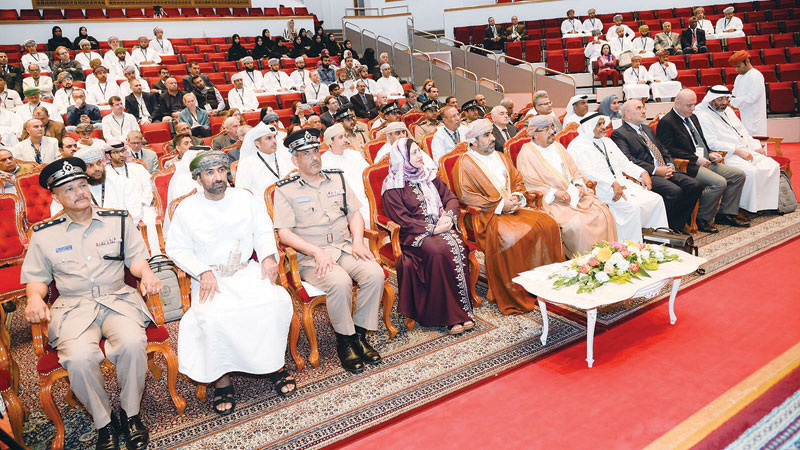

MUSCAT: The Earthquake Monitoring Centre at Sultan Qaboos University (SQU) has conducted a seismic hazard assessment that will form the basis for developing a seismic building code for Oman, Dr Rahma bint Ibrahim al Mahrouqi, Deputy Vice-Chancellor for Postgraduate Studies and Research at SQU, has said.
Speaking at a conference on ‘Seismology and Earthquake Engineering, Studies in the Arabian Plate Region’, at the 10th Gulf Seismic Forum’, hosted by SQU, which began on Monday, she said a majority of scientists agree the best way to reduce earthquake effects is to properly assess seismic hazards.
This, she said, will help decision-makers, regulators, and rescue and relief agencies to develop seismic building codes for structures that can resist earthquakes.
It will also assist in putting in place emergency and rescue plans.
The forum, which began under the patronage of Dr Ahmed bin Mohammed al Futaisi, Minister of Transport and Communications, aims to enhance exchange of ideas and programmes among specialists and researchers and display latest results in seismic hazard research.
Dr Al Mahrouqi said earthquakes do not know political or geographical barriers and the effects of this complex multi-hazard phenomenon may reach many countries far from the origin of the earthquake.
The real estate wealth, development and growth of the Gulf countries are moving at an unprecedented pace. Such progress implies research is required to protect properties against seismic hazards.
Hence, SQU is focusing its attention on protecting facilities and properties, said Dr Al Mahrouqi.
Dr Issa el Hussain, Director of Earthquake Monitoring Centre at SQU and Chair of the conference’s organizing committee, said the forum is a continuation of the previous meetings held in the UAE, Oman, Kuwait, Yemen and Saudi Arabia.
“A group of experts and researchers from the Gulf and different parts of the world are participating in the event, presenting latest research on seismology and natural disasters associated with earthquakes. It offers scientists an opportunity to learn about their peers’ latest research.”
The specialists will provide an overview of seismic monitoring networks and their evolution in their countries with a specific focus on the Arabian plate and its surroundings,” Dr El Hussain noted.
Topics covered in the forum include seismology and active tectonics; structural and earthquake engineering; seismic hazards, risks and mitigation and recent crustal movements.
Eighty papers will be presented. They will examine seismic hazards in a systematic manner in order to assist other specialists in the field as well as the authorities concerned.
A workshop was also organised on the seismic array analyses programmes.
Abdullah al Enezi, from National Seismic Network at Kuwait Institute for Scientific Research, said the Gulf region is not immune to seismic hazards. Therefore, it requires cooperation at all levels to prevent risks for protecting vital facilities and the development of growing urban activity. — ONA
Oman Observer is now on the WhatsApp channel. Click here



